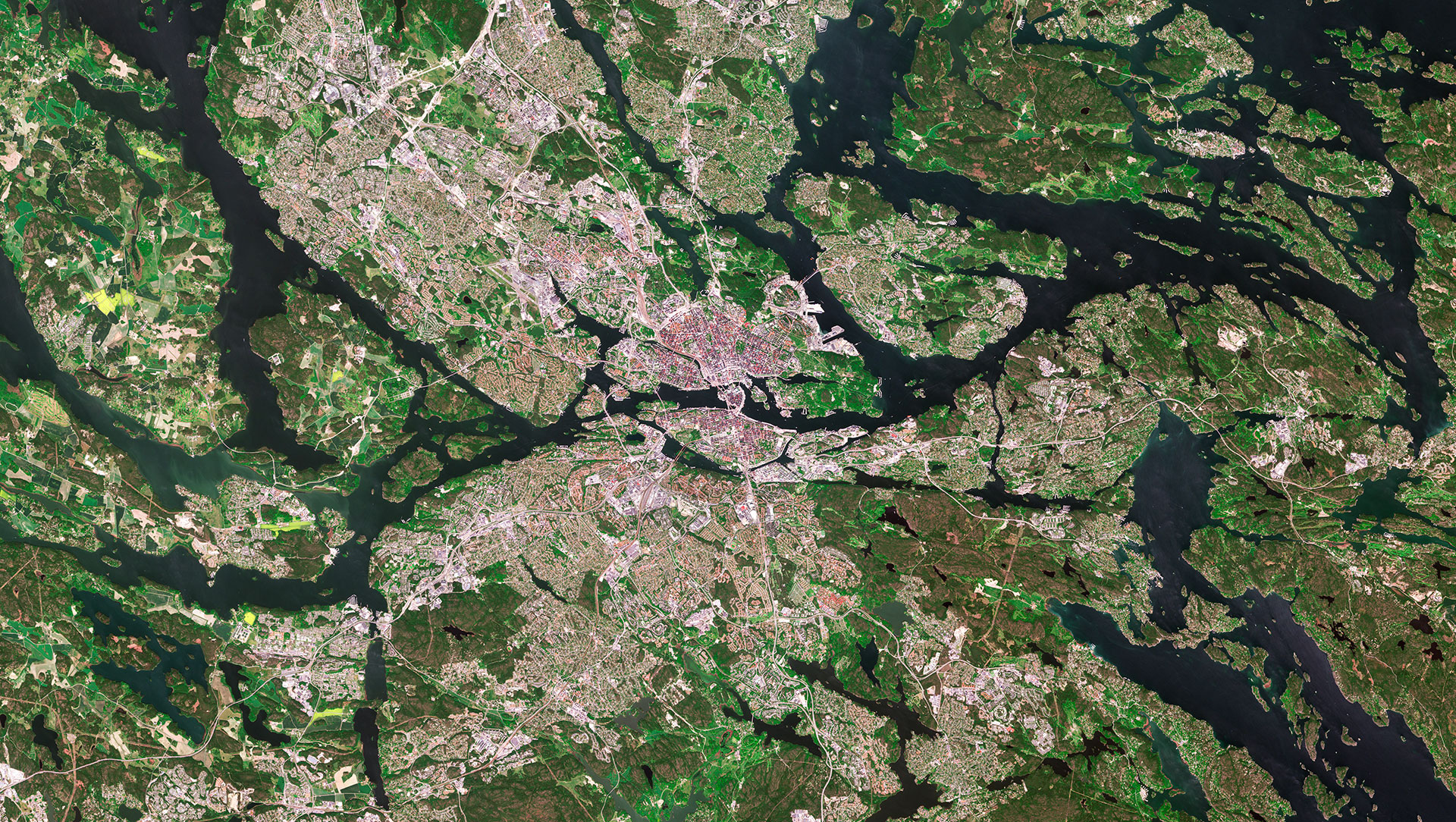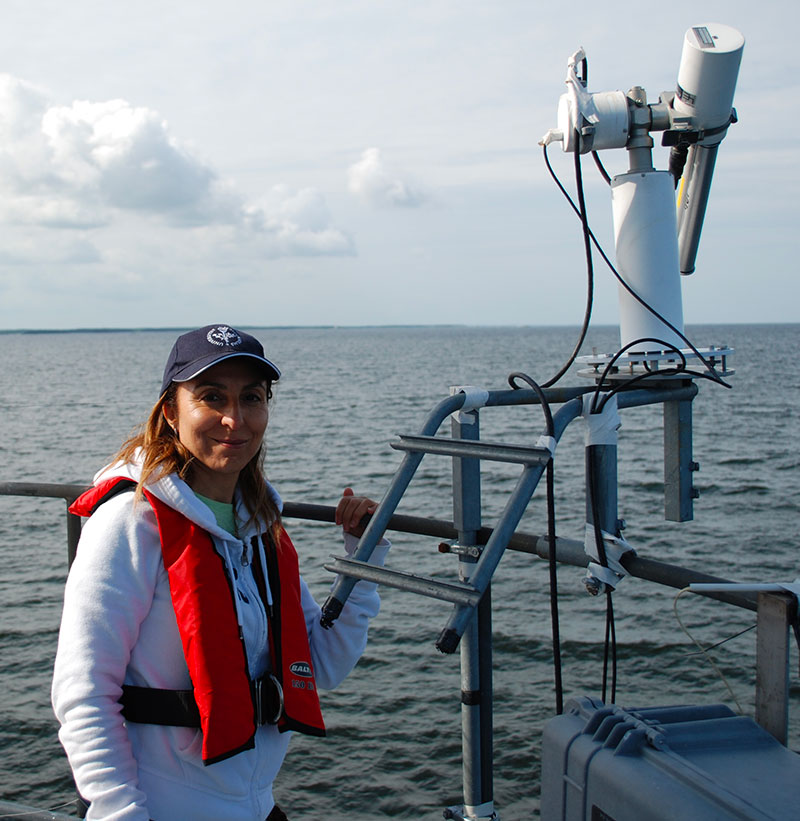One-to-one with SNSA (2)
Selima Ben Mustapha, could you share a bit about yourself and what your specific responsibilities are as part of the SCO?
What are SCO Sweden's projects?
S.B.M: Since 2021, the SCO has accredited two projects in Sweden. We are eager to see more Swedish contributions to the SCO's mission, which focuses on leveraging space-based data for climate resilience and adaptation. The EO4WFD project develops satellite-based water quality indicators for freshwater, particularly for national water management, complementing existing methods under the Water Framework Directive (WFD). The SwedCoast-BlueCarb project is a collaboration with UKSA: it aims to map Blue Carbon habitats (seagrass and macroalgae) in Swedish coastal areas, crucial for carbon sequestration and ecosystem restoration.
What are the main impacts of these projects on local communities and climate efforts?
S.B.M: The EO4WFD project enhances the ability to monitor and manage water resources effectively by developing satellite-based water quality indicators for lakes that are critical sources of drinking water. For example, Lake Vänern supplies over 800,000 people with drinking water. This project helps safeguard these vital resources and contributes to broader climate resilience efforts. The SwedCoast-BlueCarb is expected to positively impact local communities by improving coastal management and preserving eelgrass habitats, which could increase fish production. By providing data on Blue Carbon and coastal water quality, it also contributes to the fight against climate change.
What innovation technologies are used in these projects and how do they improve climate data collection?
S.B.M: These projects use advanced satellite missions like Sentinel-2, Sentinel-3, EnMAP, and commercial datasets such as WorldView. Additionally, drones and AI-based methods are employed to map and assess environmental data like eelgrass distribution and water quality. The innovative technologies and methodologies enhance the precision, scalability, and efficiency of monitoring freshwater systems and for the mapping of eelgrass, it improves data quality, the accessibility and habitat mapping accuracy.
In your opinion, how do international collaborations strengthen the SCO’s goals?
S.B.M: Collaboration is essential to the SCO’s work and is in our agency’s DNA as we actively collaborate with various countries and organisations in space-related projects. For example, The SwedCoast-BlueCarb project is done in collaboration with UKSA and aims to strengthen our relationship with UK in the domain of climate and environment. This kind of partnership facilitates the exchange between countries and leverages the SCO goals by combining diverse expertise, knowledge sharing, and by developing tools than can be adapted to different geographic areas facing similar climate challenges. It enhances the SCO’s project portfolio and increases visibility by helping raise awareness of the benefits of space technologies in climate action.
What are the main challenges you face in your projects?
S.B.M: One of the biggest challenges we face is securing funding for all proposed projects, as budget limitations can prevent promising projects from being developed. Projects can also face technical difficulties, that need to be overcome: for instance, SwedCoast-BlueCarb face difficulties in accurately mapping underwater vegetation, as light absorption by water can limit satellite detection.
What opportunities do you see to further improve the SCO’s efforts?
S.B.M: To improve SCO’s impact, we need to increase accessibility and outreach, ensuring that SCO tools and resources are widely available and user-friendly for decision-makers and the public. Additionally, a stronger funding mechanism is essential to support the implementation and scaling of SCO-accredited projects, allowing more innovative solutions to be developed. As a reviewer I sometimes feel frustrated because a very interesting project is not accredited due to a lack of budget.
What are SNSA future plans to fight climate change and how do you see Sweden’s role evolving in the SCO?
S.B.M: Sweden is actively working to expand its involvement in the SCO by developing new projects and encouraging more Swedish partners to join. The SNSA is prioritizing the use of space data for societal and industrial development, aligning with SCO’s goals. With strong expertise in space research and the Esrange Space Center, Sweden has a long history of leveraging space data for environmental and climate-related initiatives. Innovation is at the heart of our work: by using cutting-edge technologies and AI-based methodologies, we can provide action scenarios for climate change adaptation. International collaboration with other SCO members remains essential for knowledge sharing and to develop replicable solutions for global climate challenges. Moreover, Sweden is committed to leveraging space technology for climate resilience and adaptation through projects like the Arctic Weather Satellite (AWS), with ESA. This satellite will enhance climate monitoring in polar regions. Additionally, the Φ-lab Sweden and AI Sweden collaboration aims to integrate AI with space data to create innovative solutions for SCO projects.
----------
The Swedish National Space Agency (SNSA) is a central governmental agency under the Ministry of Education and Research. SNSA is responsible for national and international activities relating to space and remote sensing, primarily research and development.




